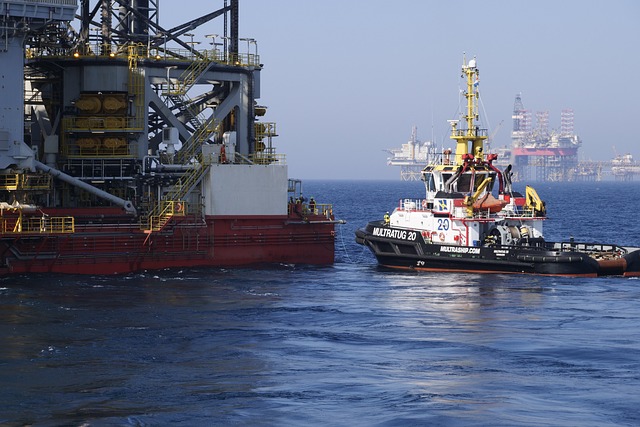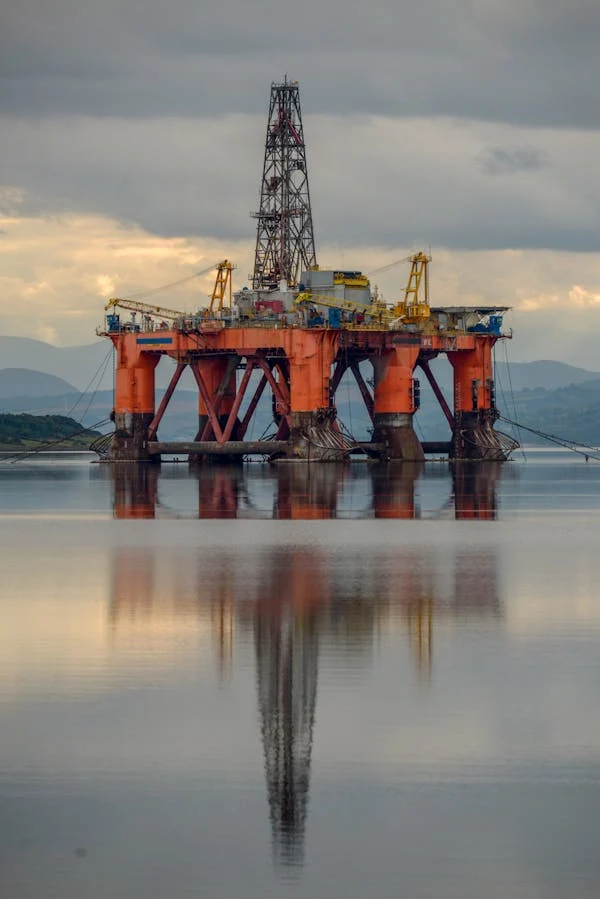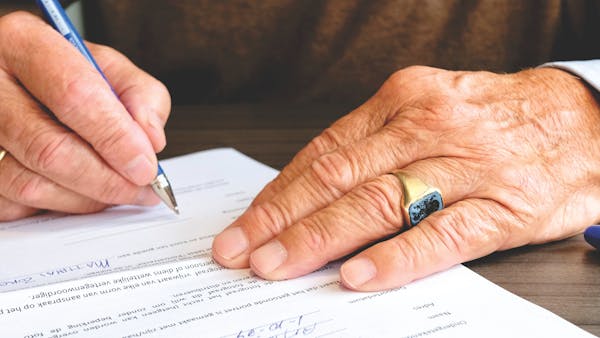Offshore Accident Lawyer – Introduction
Offshore jobs, such as those in oil rigs, shipping, and commercial fishing, come with significant risks. Workers in these industries often face hazardous conditions that can lead to serious injuries or even fatalities. When an accident happens, dealing with medical bills, lost wages, and legal claims can be overwhelming.
This is where an offshore accident lawyer becomes essential. These legal professionals specialize in maritime and offshore injury law, helping injured workers secure compensation for their losses. Whether the accident was due to employer negligence, equipment failure, or unsafe working conditions, an experienced lawyer can guide you through the legal process and fight for your rights.
If you or a loved one has been injured in an offshore accident, understanding your legal options is crucial. Seeking help from a qualified offshore accident lawyer can make a significant difference in your case and ensure you receive the compensation you deserve.

Why You Need an Offshore Accident Lawyer
Offshore work is dangerous, and accidents can lead to serious injuries, long-term disabilities, or even death. If you’ve been injured while working offshore, hiring an offshore accident lawyer is crucial to protecting your rights and securing the compensation you deserve.
Navigating Complex Maritime Laws
Offshore injury claims are different from regular workplace accidents. They fall under specialized laws such as the Jones Act, the Longshore and Harbor Workers’ Compensation Act (LHWCA), and the Outer Continental Shelf Lands Act (OCSLA). An offshore accident lawyer understands these laws and can determine the best legal path for your case.
Dealing with Insurance Companies
Employers and insurance companies often try to minimize payouts or deny claims altogether. Without legal representation, you may be pressured into accepting a low settlement. A skilled offshore accident lawyer negotiates on your behalf to ensure you receive fair compensation.
Maximizing Your Compensation
Offshore accident victims may be entitled to compensation for:
- Medical expenses
- Lost wages and future earnings
- Pain and suffering
- Rehabilitation costs
- Wrongful death benefits (for surviving family members)
An experienced lawyer will fight to recover the full amount you are owed.
Protecting You from Employer Retaliation
Some workers fear losing their jobs if they file a claim. However, laws protect offshore employees from retaliation. A lawyer ensures your rights are upheld and takes legal action if your employer tries to punish you for seeking compensation.
If you’ve been injured while working offshore, consulting an offshore accident lawyer as soon as possible can make a significant difference in your recovery and financial future.

Common Types of Offshore Accidents
Offshore work involves a variety of high-risk activities, and accidents can occur in many forms. The nature of offshore jobs, such as those on oil rigs, cargo ships, and fishing vessels, often exposes workers to dangerous conditions. Below are some of the most common types of offshore accidents that an offshore accident lawyer can help address.
Oil Rig Accidents
Oil rigs are one of the most hazardous environments for workers. Accidents on oil rigs often involve explosions, fires, and equipment malfunctions. Common causes of accidents include gas leaks, faulty machinery, and poor maintenance. Workers may suffer burns, broken bones, or traumatic brain injuries from these incidents.
Commercial Fishing Accidents
Fishing vessels can be treacherous due to rough waters and heavy equipment. Common fishing-related accidents include falls overboard, injuries from handling sharp tools or fishing lines, and accidents involving fishing gear. These accidents can lead to drowning, serious cuts, and amputations.
Cargo Ship and Tanker Accidents
Shipping accidents can occur during loading and unloading cargo, navigating rough seas, or handling hazardous materials. Collisions, slips and falls, and cargo-related injuries are all too common on large vessels. Workers may also face risks from exposure to toxic chemicals or hazardous cargo.
Diving and Underwater Welding Accidents
Offshore workers involved in diving or underwater welding are particularly vulnerable to dangerous conditions. Accidents may include decompression sickness, drowning, or injuries caused by welding equipment. These accidents often result in severe physical injuries and long-term disabilities.
Slip-and-Fall Accidents
Slippery or unstable surfaces are a major concern on offshore platforms and vessels. Workers are often at risk of slip-and-fall accidents caused by wet or uneven surfaces. These accidents can lead to broken bones, head injuries, and sprains or strains.
Understanding the types of accidents that can happen offshore is crucial for workers. If you’ve been injured in any of these incidents, contacting an offshore accident lawyer can help ensure you receive the proper legal support and compensation for your injuries.

Key Laws That Protect Offshore Workers
Offshore workers are entitled to specific legal protections that help them secure compensation for injuries and accidents. Several key laws exist to safeguard workers in the maritime and offshore industries, and an offshore accident lawyer is crucial in helping navigate these complex regulations. Below are some of the most important laws that protect offshore workers.
The Jones Act
The Jones Act is one of the primary laws that protects offshore workers, particularly those working on vessels like oil rigs, tankers, and cargo ships. Under this law, workers who are injured while working on a ship or offshore platform can file a personal injury claim against their employer for negligence. This law offers broader protections compared to standard workers’ compensation, allowing injured workers to seek damages for pain and suffering, lost wages, and medical expenses.
Longshore and Harbor Workers’ Compensation Act (LHWCA)
The LHWCA applies to workers who are injured on navigable waters or on the docks of ports and harbors. This law provides compensation for medical expenses, disability benefits, and vocational rehabilitation for workers who are hurt in maritime-related jobs, including those working on offshore platforms. If you work in a port or on the shore and are injured, the LHWCA offers vital protection.
Outer Continental Shelf Lands Act (OCSLA)
The OCSLA governs workers who are injured on the Outer Continental Shelf (OCS), which includes oil and gas platforms located off the coast. This law allows workers injured on offshore oil rigs or platforms to claim compensation for their injuries under specific provisions. It works in conjunction with the Jones Act, ensuring that workers in offshore drilling and other activities are protected.
Death on the High Seas Act (DOHSA)
The Death on the High Seas Act (DOHSA) provides compensation for families who lose a loved one in a fatal accident that occurs more than three nautical miles from U.S. shores. If a worker is killed in an offshore accident, this law allows surviving family members to pursue compensation for the loss of financial support and emotional pain.
These laws are essential in providing legal protection for offshore workers. If you’ve been injured while working offshore, consulting with an offshore accident lawyer is key to understanding which of these laws apply to your case and ensuring you receive the full compensation you’re entitled to.

What to Do After an Offshore Accident
If you’ve been involved in an offshore accident, knowing the right steps to take immediately can significantly impact your health, safety, and ability to secure compensation. Here’s a clear guide on what to do after an accident and how an offshore accident lawyer can help.
1. Seek Medical Attention
Your health should be your top priority. Even if your injuries seem minor at first, it’s essential to seek medical care as soon as possible. Offshore accidents can lead to serious injuries that may not be immediately apparent. A prompt medical evaluation not only ensures your well-being but also creates a documented record of your injuries, which will be vital for your legal case.
2. Report the Accident
Notify your employer or supervisor about the accident as soon as it happens. Ensure that the incident is formally reported, and request a copy of the report. Having a documented record of the accident is crucial for your workers’ compensation claim or any potential legal action you may pursue.
3. Document the Scene
If possible, take photos and videos of the accident site and any visible injuries. This evidence can play a key role in proving your case later. Document any hazardous conditions that contributed to the accident, such as faulty equipment, wet surfaces, or lack of safety protocols.
4. Collect Witness Statements
If there were any witnesses to the accident, ask them to provide statements or contact information. Their testimony can be invaluable in establishing the cause of the accident and supporting your claim.
5. Contact an Offshore Accident Lawyer
As soon as possible, consult with an offshore accident lawyer. These legal professionals specialize in maritime laws and offshore injury claims. They can guide you through the complex process of filing a claim, negotiating with insurance companies, and ensuring you receive the compensation you’re entitled to.
6. Follow Medical Advice
Be sure to follow all medical instructions and keep records of your treatments and appointments. This will help in proving the extent of your injuries and show that you are doing everything necessary to recover.
7. Do Not Settle Quickly
Avoid accepting any settlement offers from your employer’s insurance company until you’ve spoken with an offshore accident lawyer. Often, these initial offers are far lower than what you’re actually entitled to. Your lawyer can help assess the full value of your claim and ensure you’re not taken advantage of.
Taking these steps after an offshore accident ensures your health and safety are addressed and sets you on the right path to securing fair compensation. An experienced offshore accident lawyer can help guide you through the legal process and fight for your rights every step of the way.
How to Choose the Best Offshore Accident Lawyer
Choosing the right offshore accident lawyer can make a significant difference in the outcome of your case. With the complexities of maritime law and the unique challenges of offshore injury claims, it’s crucial to select a lawyer who has the expertise and experience to handle your specific situation. Here are key factors to consider when choosing the best offshore accident lawyer for your case.
1. Experience in Offshore Accident Claims
Look for a lawyer who has specific experience handling offshore accident cases. Offshore injury law involves unique legal considerations, including maritime law and federal regulations. An experienced offshore accident lawyer will be familiar with the intricacies of these laws and how they apply to your case.
2. Track Record of Success
Review the lawyer’s track record in handling offshore accident claims. A good lawyer should be able to provide examples of successful cases they’ve handled, particularly those similar to your own. Check for client testimonials, case results, and references to get an idea of their success rate and reputation.
3. Specialization in Maritime Law
Since offshore accidents fall under maritime law, it’s essential to hire a lawyer who specializes in this field. Maritime law is different from other types of personal injury law, and a specialized lawyer will have the in-depth knowledge needed to navigate complex regulations like the Jones Act and the Longshore and Harbor Workers’ Compensation Act (LHWCA).
4. Availability and Communication
Effective communication is key when working with any lawyer. Make sure the lawyer you choose is responsive and available to address your concerns. They should be easy to reach, offer clear explanations, and provide regular updates on the status of your case.
5. Understanding of Your Needs
Your offshore accident lawyer should take the time to understand the specifics of your case, your injuries, and your long-term needs. They should be empathetic and focused on achieving the best possible outcome for you, including getting you the compensation for medical expenses, lost wages, pain, and suffering.
6. Fee Structure
Most offshore accident lawyers work on a contingency fee basis, meaning they only get paid if you win your case. Be sure to discuss their fee structure upfront, including any additional costs or expenses that may arise during the process. This ensures there are no surprises and helps you understand how much of the compensation will go toward legal fees.
7. Local Knowledge
If your offshore accident occurred in a specific location, it’s beneficial to choose a lawyer who is familiar with the local courts, laws, and regulations in that area. Local expertise can be an advantage when navigating legal procedures and building a strong case.
Choosing the best offshore accident lawyer can have a direct impact on the success of your case. By considering these factors and taking your time to find the right fit, you can ensure that you have the legal representation necessary to fight for the compensation you deserve.
How Offshore Accident Lawyers Handle Cases
Offshore accident lawyers are specialized professionals who understand the complexities of maritime and offshore injury law. When you hire an offshore accident lawyer, you can expect them to handle your case through a systematic process that ensures your rights are protected and you receive the compensation you’re entitled to. Here’s how offshore accident lawyers typically handle cases.
1. Initial Consultation and Case Evaluation
The first step an offshore accident lawyer takes is to evaluate the details of your case. During the initial consultation, the lawyer will ask you about the accident, your injuries, and any evidence you have, such as medical records, witness statements, and accident reports. They will assess whether your case qualifies for compensation under maritime laws like the Jones Act or LHWCA and provide an honest opinion of the likelihood of success.
2. Gathering Evidence
Once you’ve decided to move forward with the case, your lawyer will begin gathering evidence to support your claim. This may include obtaining accident reports, maintenance records, safety logs, and medical documents. They will also interview witnesses, review surveillance footage (if available), and examine the conditions that led to the accident. This thorough investigation is essential for building a strong case.
3. Filing a Claim or Lawsuit
After gathering the necessary evidence, an offshore accident lawyer will help you file your claim with the appropriate party, whether it’s your employer, the insurance company, or a third party responsible for the accident. If a settlement cannot be reached, your lawyer will file a lawsuit and initiate legal proceedings in court. Your lawyer will ensure that all deadlines are met and the required paperwork is properly filed to avoid delays in the case.
4. Negotiating Settlements
In many offshore accident cases, the goal is to reach a settlement without going to trial. An experienced offshore accident lawyer will negotiate with the insurance company or responsible parties to secure a fair settlement that covers your medical expenses, lost wages, pain and suffering, and other damages. Your lawyer will use their knowledge of offshore injury law to ensure you’re not offered a settlement that is lower than what you deserve.
5. Trial Representation
If a fair settlement cannot be reached, your offshore accident lawyer will take your case to court. They will represent you throughout the trial, presenting evidence, cross-examining witnesses, and making legal arguments on your behalf. Offshore accident cases often involve complex legal issues, so having a lawyer who understands maritime laws and legal procedures is essential to achieving a favorable verdict.
6. Post-Trial Actions
If your case goes to trial and you win, your lawyer will assist with collecting the awarded compensation. In some cases, if the opposing party appeals the decision, your lawyer will handle the appeal process to ensure that your case is properly represented and your award is upheld.
Offshore accident lawyers are dedicated to ensuring injured workers receive the compensation they deserve. Through a structured process of investigation, negotiation, and legal action, they guide clients through each stage of the case. If you’ve been injured in an offshore accident, consulting with an experienced lawyer is critical to protecting your rights and securing the best possible outcome for your case.
Conclusion
In conclusion, offshore accidents are serious and often life-altering events that can leave workers facing significant physical, emotional, and financial challenges. Whether the accident is caused by employer negligence, unsafe working conditions, or equipment failure, it is essential to have the right legal representation. An offshore accident lawyer can help you navigate the complexities of maritime law, ensure that your rights are protected, and work to secure the compensation you deserve.
From understanding key laws that protect offshore workers to handling the legal intricacies of claims and lawsuits, an experienced offshore accident lawyer provides the expertise necessary for a successful case. If you or a loved one has been injured in an offshore accident, consulting with a qualified lawyer is the first step toward ensuring your future and well-being are secured.
By choosing the right offshore accident lawyer, you can focus on your recovery while they focus on getting you the compensation you’re entitled to.